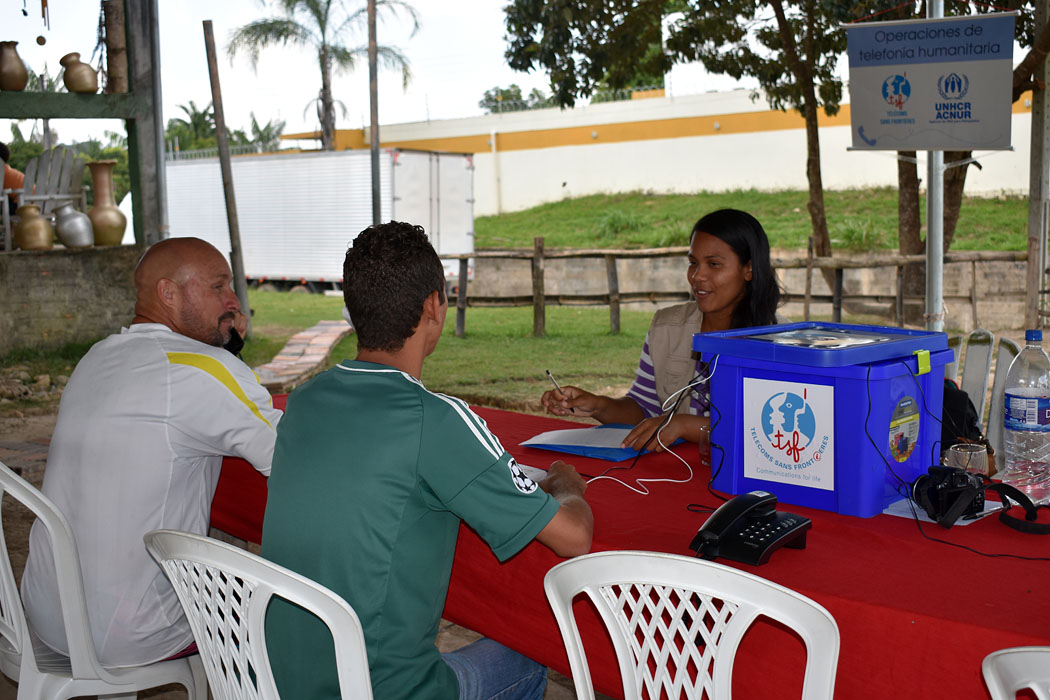Since 19 September, calling operations have been carried out four days a week in the Pastoral Do Migrante Centre, a centre where refugees are served a hot meal every morning and where they can get information on their rights. A free call service was also set up by TSF at the Canarinhos Da Amazonia Centre for refugees living in the area.
“For those staying in Pacaraima, the TECCs are often the only means of maintaining the family bonds. When we started the operations in Pacaraima, I saw a son sorrowfully apologizing to his mother because he had not been able to get in contact with her over the last few months. This man lives in a remote area and thanks to the TSF operation in the city, he can now call his family every week,” reports Adaiana Souza Lima, our project coordinator.
Most Venezuelans want to continue their journey to other parts of Brazil, and even to other countries. But they lack of money, and thus they are forced to stay in Pacaraima. This small town of 12,000 inhabitants offers few opportunities so most of the 1,200 to 2,000 refugees live on the streets or in improvised homes.
UNHCR estimates that 1.6 million people have fled Venezuela since 2015 and another 1.8 million will have left this year. "This is one of the most important crises, comparable to that of Syria. In its modern history, Latin America has never experienced an exodus of this dimension," said UNHCR's Regional Representative for the United States and the Caribbean.
TSF became aware at a very early stage of the scale of this crisis and was one of the first international NGOs deployed in Brazil in April 2018. In 344 days of operations, 35,217 calls allowed 155,192 Venezuelans to communicate with their loved ones.
TSF opens two call centres in Pacaraima
In the six months since starting our operations in Boa Vista, TSF opened two Emergency Call Centres (TECCs) in the border town of Pacaraima where many Venezuelan refugees arrive daily. The numbers continue to grow with about 500 people arriving on average each day, with peaks of up to 800 entries.






